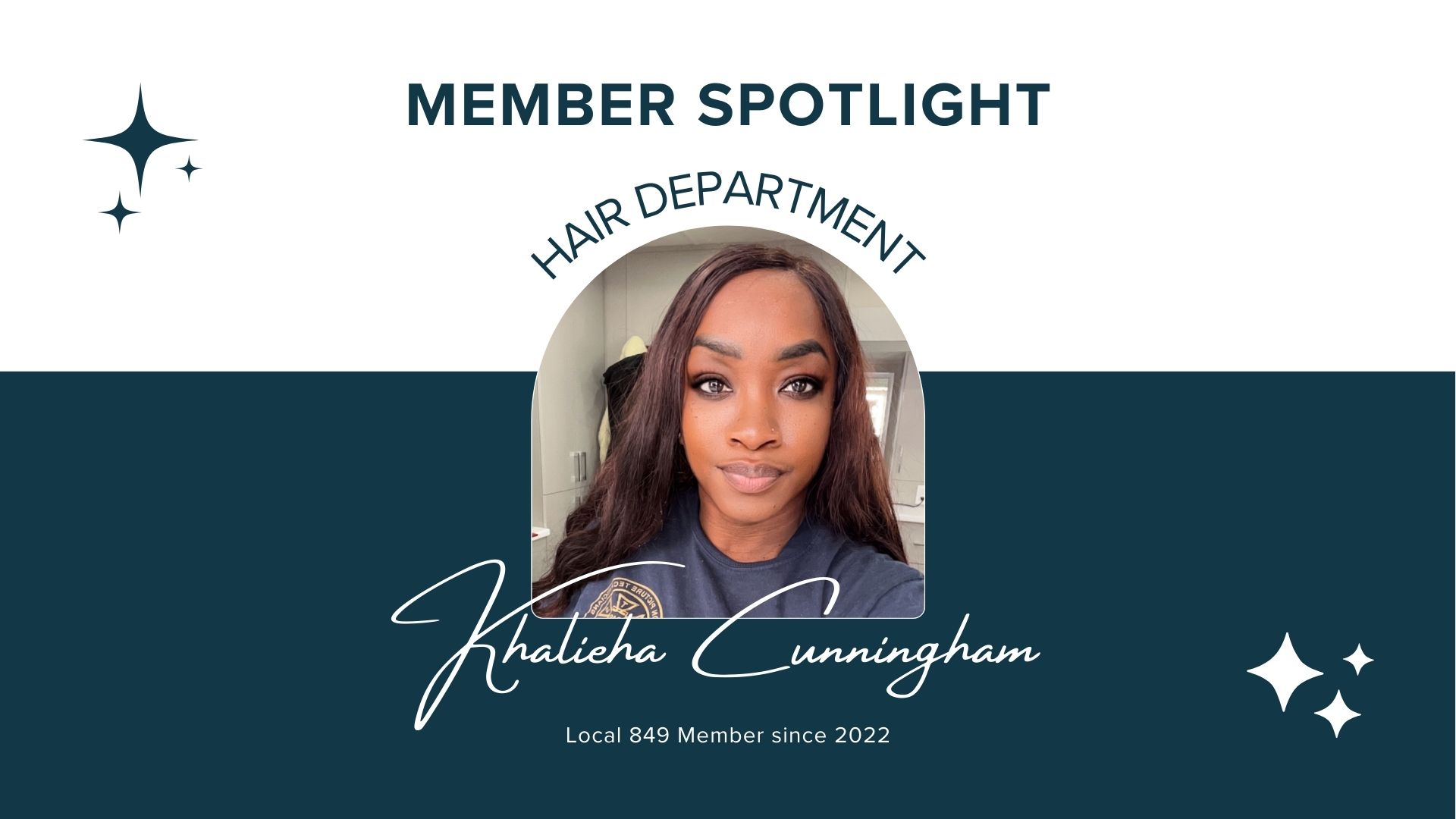
Khalieha Cunningham—the First Black Hair Department Head in Nova Scotia’s Film Industry and Co-Chair of Local 849's DEI Committee —provides tips, insight, and more for anyone with a passion for hair asking themselves "Is film right for me?"
What is the role of the Hair Department in a production:
To design and create hairstyles that will align with the Director's vision for the film. This includes period styling, wig installation, cutting/barbering, and on-set maintenance. Before a production commences, a hair and makeup meeting is held to go over character breakdowns. During this time, cast looks are created based on the script and the character determining each cast's look, feel, and vibe.
These looks are sometimes changed based on scene order and time of day. An example of this would be if someone is working in an office there would be an "office look"—a low ponytail, bun, blowout. The script scene then changes to night and that person is at a bar, this look would be "fun and flirty"—high ponytail or blowout with curls/waves.
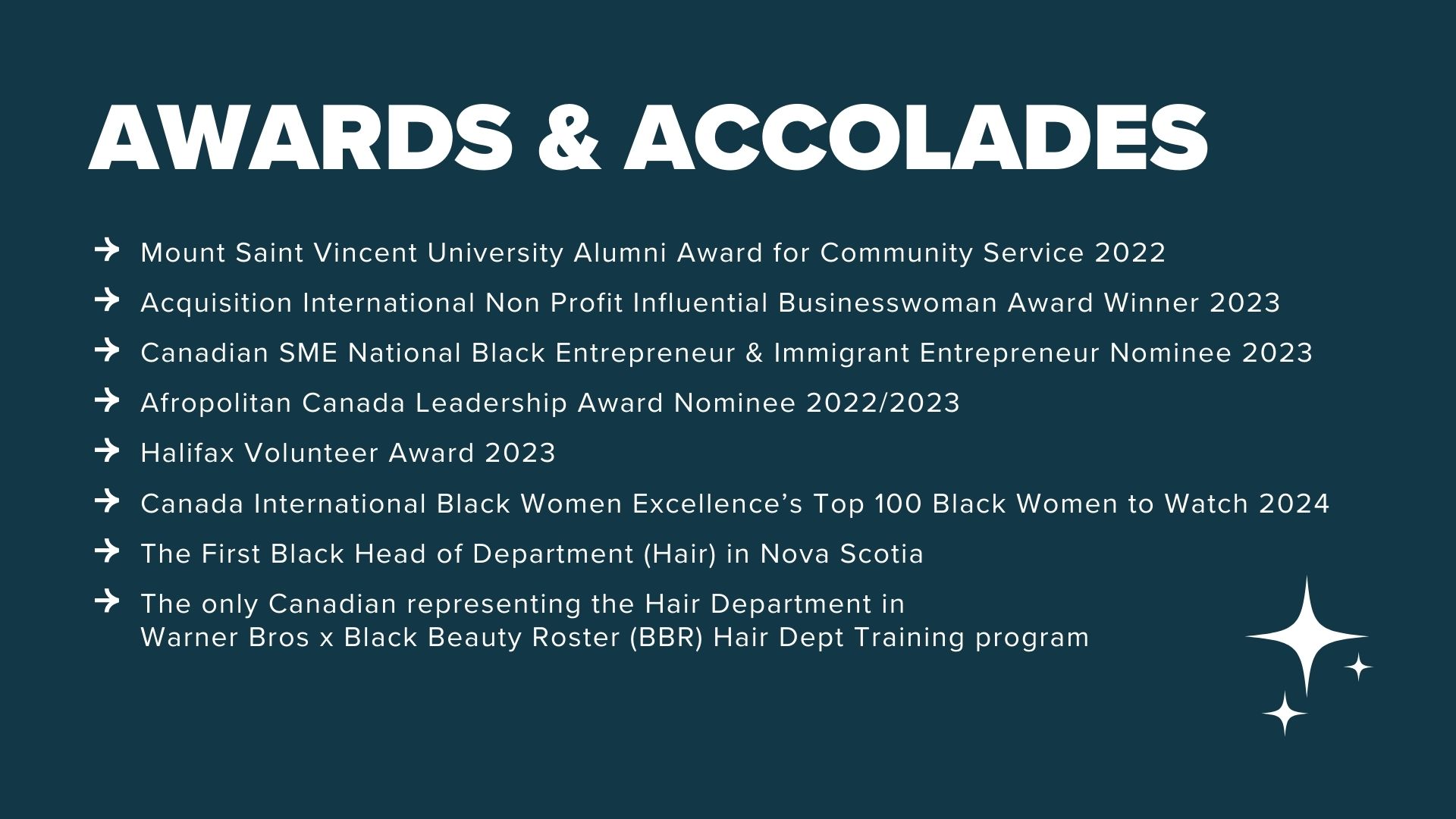
What does a typical day look like for you:
As a Hair Department Head, a day in the life consists of me starting each day very early in the morning with a precall that allows all cast to be processed for an on-time start of day. Having prepped for my day the day before, I take a few minutes at the top of the morning to reconfirm the cast looks based on continuity, review my call sheet, relay notes for the day to my team, and then get to work styling to have the cast look and feel their best before heading to set.
As the day progresses, I’d make any hair changes as it relates to the script, process cast, and be on set making sure that everything is looking as great as it should.
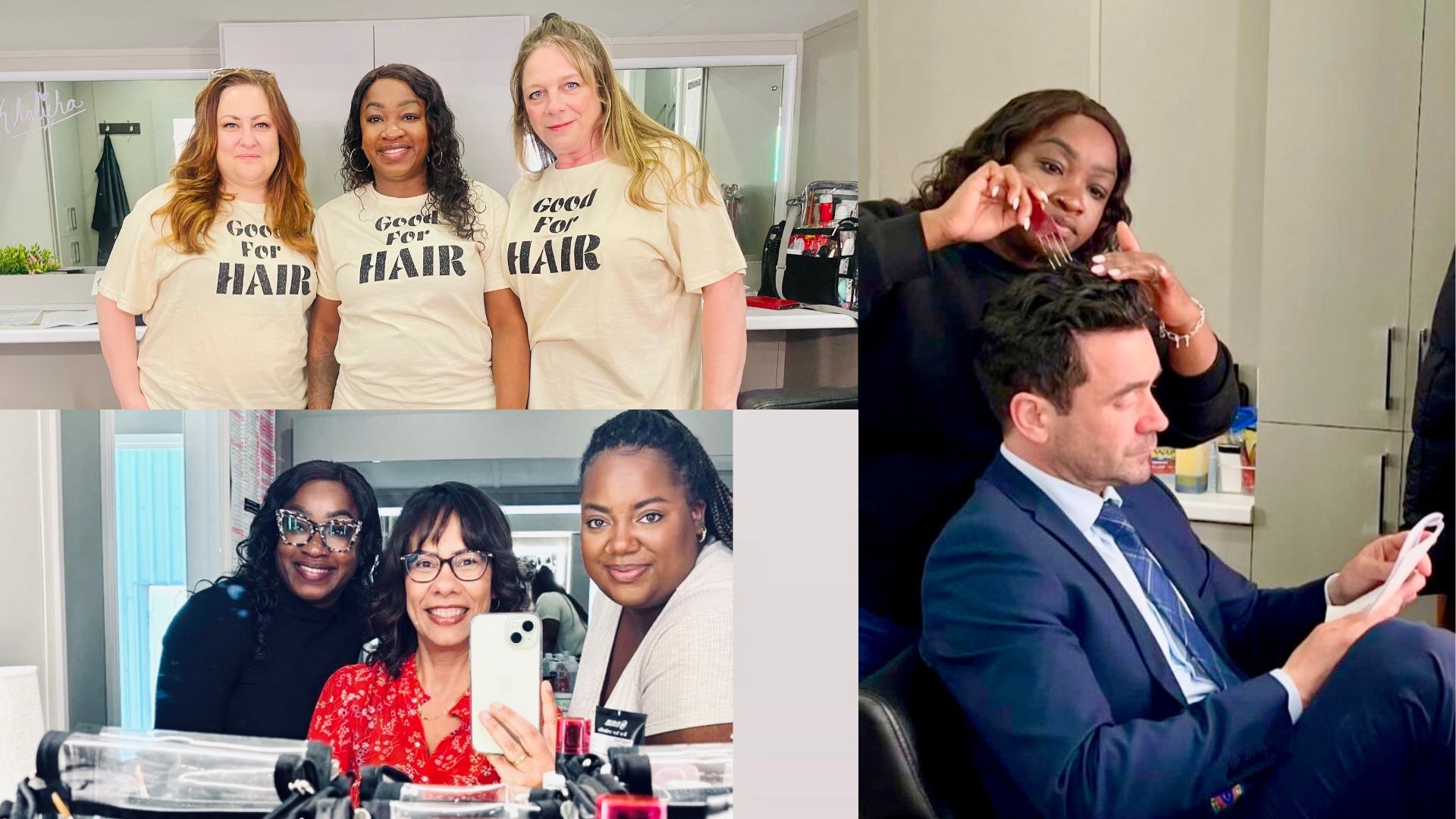
How did you get your start in the film industry:
When asked this question, I always tell people that for a while I was torn between two lovers. I'm an Accountant by profession and a licensed Cosmetologist and Makeup Artist by trade. I have always desired to work in the film industry. Having graduated high school at the age of 16, I owned a full-service beauty salon at that age.
So the love for doing hair has always been there. I got an opportunity maybe four years ago to co-key on a production within Halifax. And I would say that it was just such a beautiful experience and it just really confirmed my passion for doing hair. And it gave me the opportunity to kind of catapult into the person that I am today, being the first Black Head of Hair in Atlantic Canada.
For some people working in film can be a love-hate relationship. I absolutely love it. You're a part of a bigger picture, literally. Everything that you do impacts and affects someone else.
What makes your career interesting:
I love taking on new challenges and creating different looks, diversifying my portfolio. I love installing wigs. Bringing characters to life.
I would love to work on a '70s production. I've only gotten to work on one period piece thus far. We did get to do some amazing looks on that. I really enjoyed it. But I would love to do period pieces from the 20's - 70's. The intricacy of the styling is what I love to do.
You're a part of a bigger picture, literally.
What are some of your favourite memories:
There are two productions that I'd say are really near and dear to my heart: Moonshine and Saint-Pierre.
There was one time I installed a braided wig [on Moonshine] and I absolutely loved the application of it. It was flawless. For me, there's no greater feeling than bringing to life a look that a cast sees of themselves and wants the rest of the world to see.
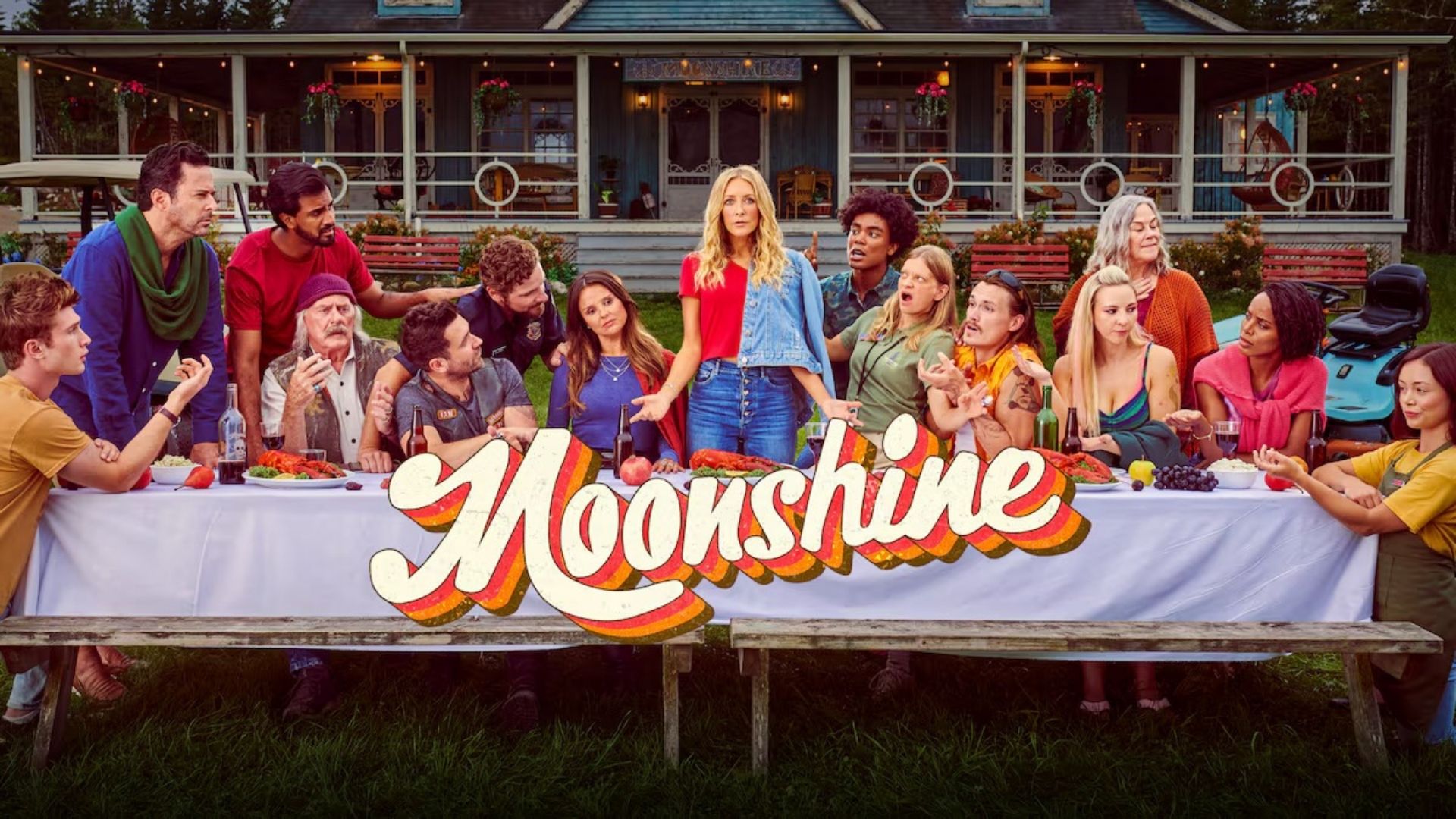
What do you do when you're not on set:
I am the founder of a nonprofit organization called Life Beyond the Hurt. It's a nonprofit organization dedicated to marginalized women who have experienced a form of domestic violence or hurt in their lives and just need a place of hope, resources, and solace. We offer personal development workshops, we do clothing and grocery drives. We offer monetary donations to members within our community. We host public workshops at the local libraries, division board workshops, information sessions, and things of that sort. So that and family time is what fills my cup.
I've actually recently been selected as one of Canada's Top 100 Black Women to Watch for 2024. I'm really excited about that. I've been awarded by the Halifax local government for my community service. I've been awarded by an alumni from Mount St. Vincent for my community service as well. I currently work at a local women's shelter in Operations as an Operations Supervisor.
What does being an I.A.T.S.E. member mean to you:
Structure, benefits, and protection are part of the reason why I decided that I wanted to join. Being a part of the union I feel supported, I feel respected, I feel heard, but above all, I feel protected. I know that they're there to ensure that my needs are being met. If ever there's a concern or even ahead of me going on a production, I reach out to [Local 849 Business Agent] Shelley Bibby and I say, Shelley, this is what's happening. What are your thoughts? Or what should I ask for? What should I do? What does this look like? Does this make sense to you? There's never a moment that she doesn't answer my call.
It is beneficial to be a part of something where there's structure, where I know that based on my title, and my position, I'll be compensated accordingly. Knowing that I have support if I'm in doubt or I need further clarification. When you're not a part of the union, you're kind of getting information from here, there and everywhere. It's not always valid or doesn't apply. So to be a part of something that has structure, I would recommend anyone.
I think above all else, it's camaraderie. Being a part of an organization where you feel valued. Teamwork is so essential in this industry. Choosing the right team can really make or break your department. And just being surrounded by amazing mentors and support team members, I think is what has really helped me succeed in my role. I had an amazing mentor in [Local 849 Hair Department Representative] Mallory Glenn. She's been phenomenal in my growth and very supportive. [Local 849 Makeup Department Co-Representative] Charlotte Gevaris in the Makeup department as well has also been a great support system. And often, hair and makeup, although they work together in completing a look, they're not always unified and on the same page. But I'd say having worked in Nova Scotia and working under the leadership of those two has really set the tone for how I lead as well. So I have to give them that credit. They've been very supportive.
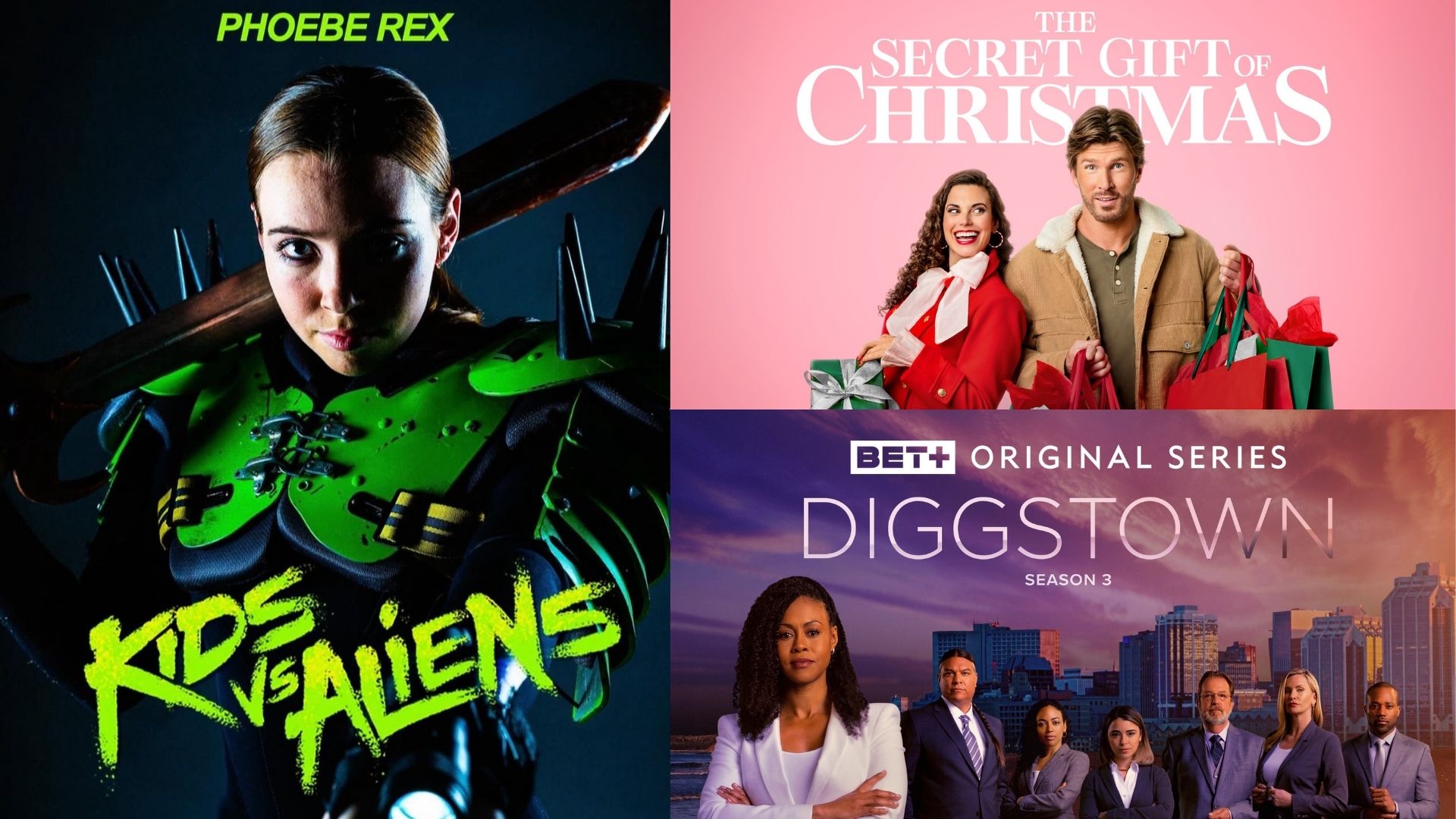
As the first Black Head of Hair Department in Atlantic Canada, what do you want to tell BIPOC folks interested in a career in film:
Diversity and representation matters. I've spent my time thus far in the union and on production using my talent and experiences to bring change and fill the void for BIPOC stylists, making each cast feel seen, heard, and validated. And I hope that there will be continued education, affording everyone a level of comfort to be able to service anyone that may walk into their trailer.
I can't tell you the amount of times when a BIPOC cast would walk into the trailer and just let out a breath of fresh air or exhale in relief [when they see me]. And I think it's more so having to do with feeling they know that they will be seen, felt, heard, validated.
I tell my assistants on productions that you might not have the answers, you might not have the know-how, but in that moment listening, being led by the cast, assessing and understanding their needs makes a huge difference. Confidence is key. People just want to know that you’re hearing and you're actioning what they're saying. It's just that level of validation that people need and I've been able to offer that.
There was a time when I was on a production and we needed to do box braids on a cast, and it was myself and two other colleagues who were not of the BIPOC community. They were able to come in and actually contribute and complete the braid with me. And the cast that was sitting in the chair was like, do you mind if I take a picture? And she actually cried. She said “this is the first time I've ever felt taken care of and to have each one of you actually be able to participate in this makes me so happy.”
It's moments like that that really bring me joy and reaffirm my position within the union, why my presence is needed, and my willingness to be able to share my knowledge and my skill set with everybody around me.
For me, there's no greater feeling than bringing to life a look that a cast sees of themselves and wants the rest of the world to see.
What advice would you give to someone getting started in film:
- Just do it. Come with an open mind, be willing to be led, be willing to support. You have value to add. I think each person has something that they can add to their team. Know your strengths. Be willing to ask when you don't know how to do something.
- Save your money. I think it's a very, very important note. Save your money because I don't think we're told that as often as we should. It's straightforward, but I think it's really something that people should be aware of because the money comes in fast, but it also goes just as fast or sometimes faster.
- Build great relationships. Above all else, that's the major thing. Be respectful, be mindful of how you would want to be treated. You are a walking resume; so every job that you go on put your best self forward because that will determine if you're going to be employed in the future.
